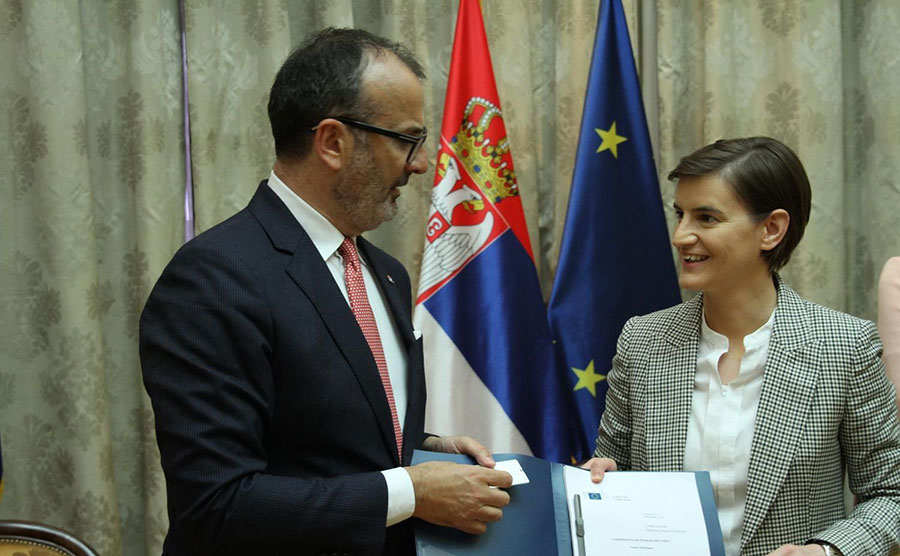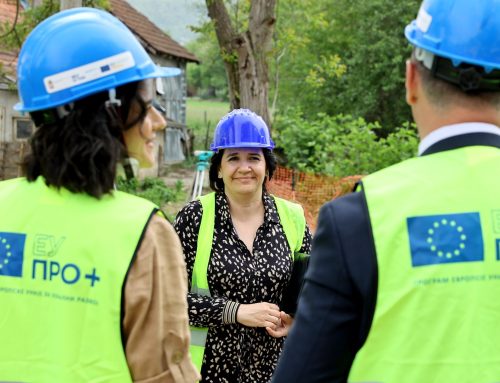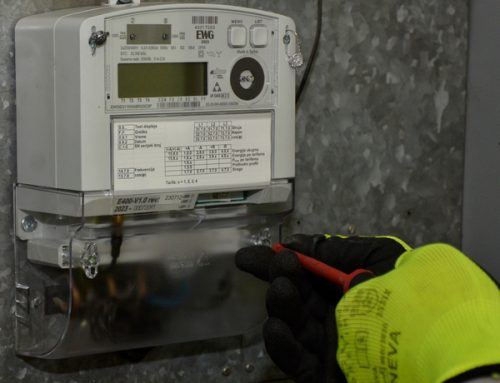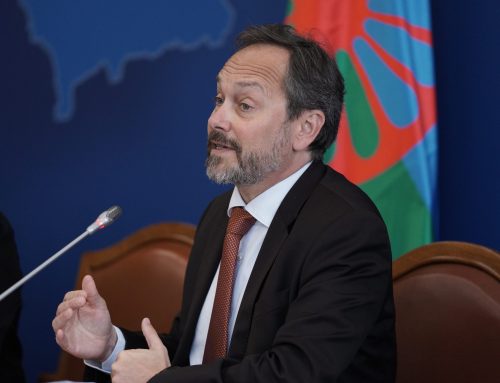The Report confirms Government’s commitment to EU path and Serbia’s good economy progress, the Head of the EU Delegation to Serbia Sem Fabrizi said, adding that the issue of political influence on judiciary remains unresolved.
“There is some progress in judiciary, but the issue of political influence in this area remains unresolved,” Fabrizi said during a joint press conference he held together with Serbian Prime Minister Ana Brnabic following the official handover ceremony.
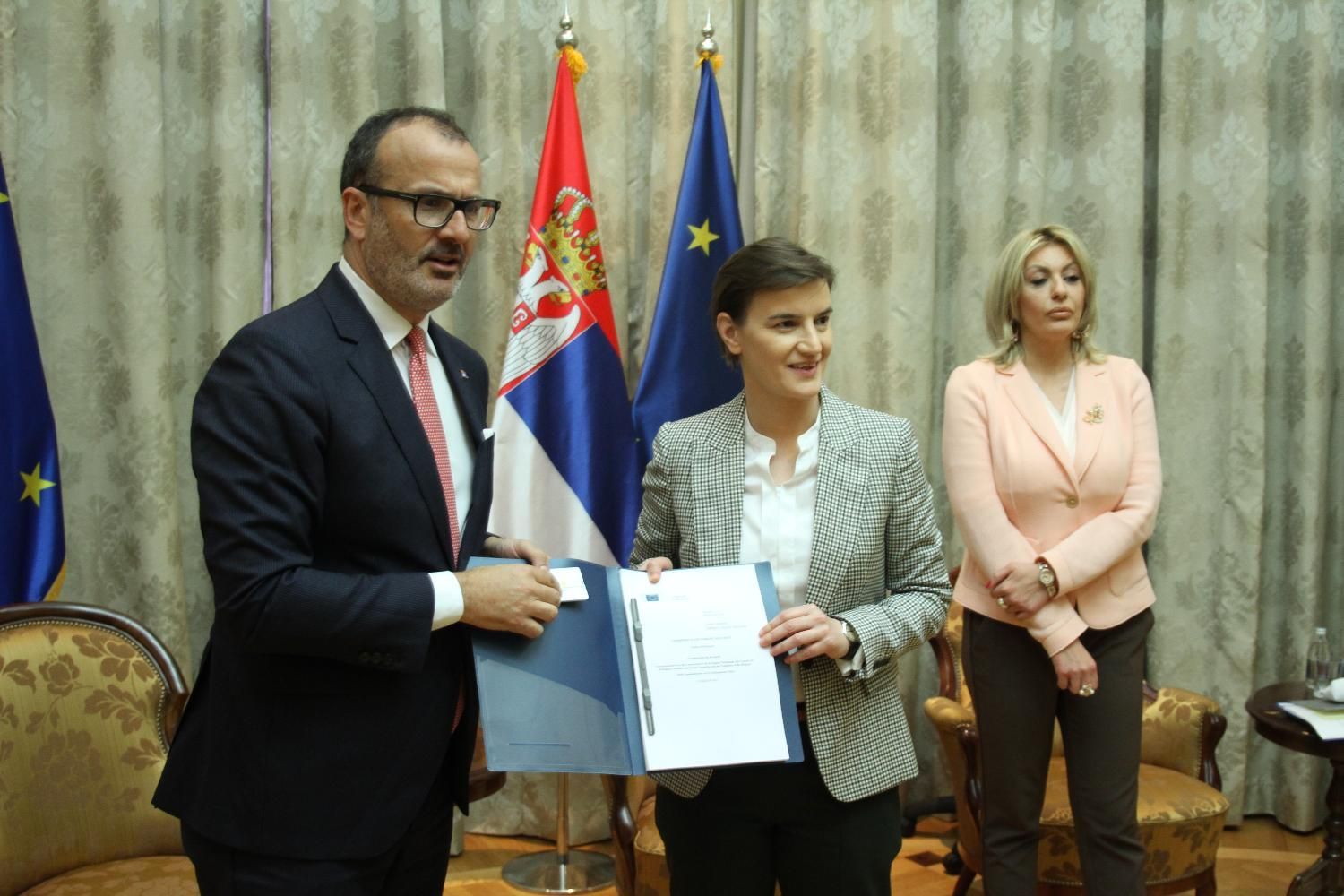
Fonet
He said that the Report, which covered the period between late 2016 and early 2018, confirmed some level of progress in the fight against corruption and organised crime and Serbia’s positive role in regional cooperation, with Pristina in particular.
He added that “Serbia should make more effort to implement the previously reached agreements and turn the dialogue with Pristina into a legally binding agreement.”
When it comes to economic criteria, Serbia has made good progress, Fabrizi said.
“Serbia has made strong results in the area of fiscal policy, by producing a budgetary surplus. Exports and FDI have grown, business environment has improved,” the Head of the EU Delegation to Serbia said.
He also said that Serbia should invest more effort into public administration and tax authority reform as well as into combating informal economy. He added, however, that “when it comes to economy, Serbia has yielded some important results.”
Brnabic: The Report largely reflecting real situation
Serbian Prime Minister Ana Brnabic expressed her satisfaction over the EC Report, describing it as positive and largely true to the situation on the ground in Serbia with all its advantages and disadvantages, offering a list of tasks that are to be taken upon.
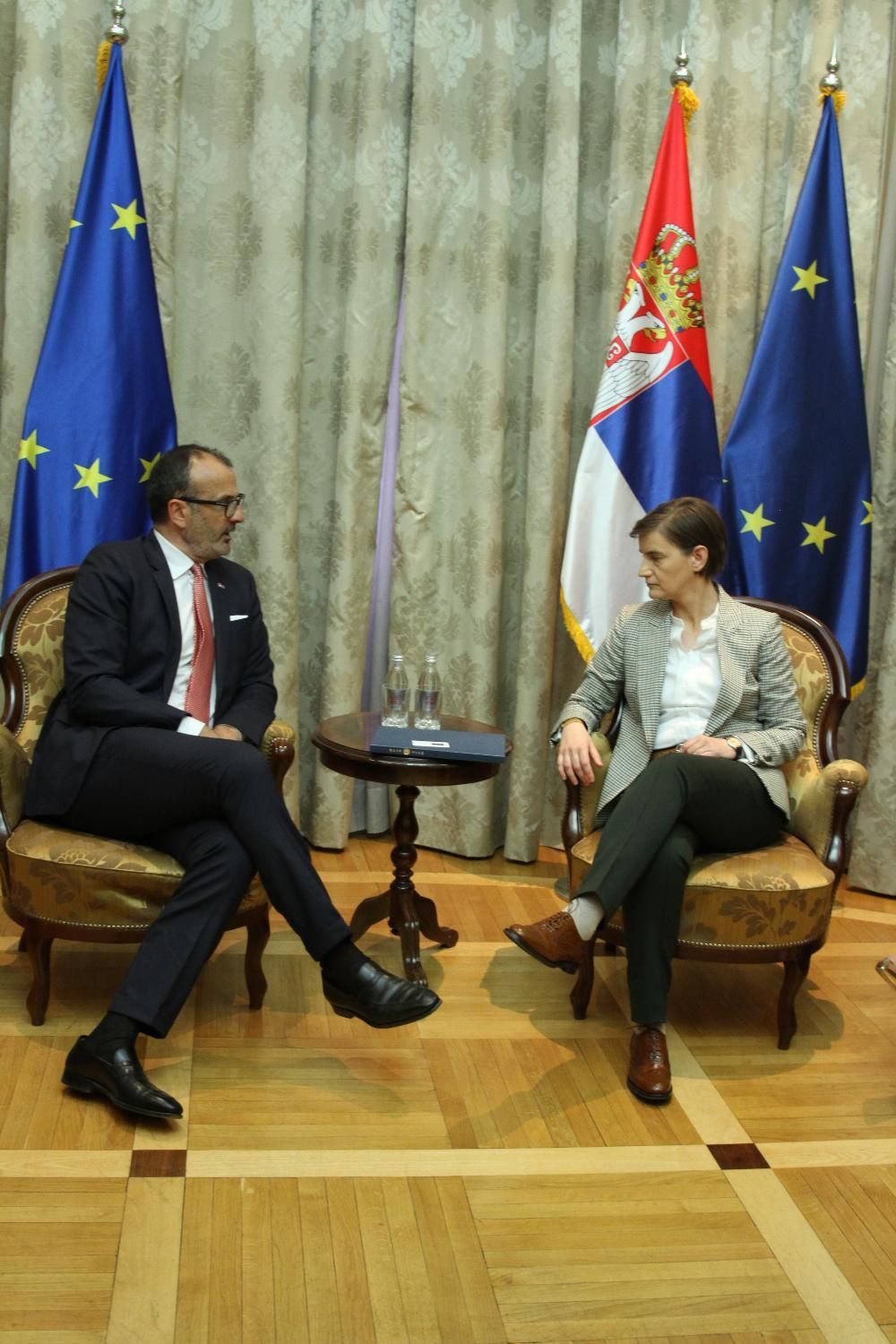
Fonet
Addressing the joint press conference at the Government of Serbia, she added that she disagreed with certain parts of the Report and that the Government would be trying hard to showcase its achievements by June in order to secure the opening of as many chapters as possible.
Brnabic said that Serbia had made better progress in the rule of law than stated in the Report. She reminded that Serbia adopted both amendments to the Constitution – and submitted them to the Venice Commission for opinion – and the prosecutorial war crime strategy. However, she said, the Report failed to mention this, as it did not happen during the reporting period.
The Prime Minister criticised the European Commission for applying different standards when producing reports. For instance, the Report on Kosovo welcomed Pristina’s progress concerning the establishment of the Community of Serb Municipalities, even though it took place on 4 April, months after the reporting period had ended.
“While Serbia is asked to adopt and implement laws, Pristina’s mere intentions are immediately recognised as progress,” Brnabic said.
She said she disagreed with EC’s assessment that there was no progress in the area of media freedom. I still don’t understand what the problems in this area are, she said, adding that she is willing to talk to anybody who believes there are issues in that sector in order to resolve them.
The Report notes that Serbia’s biggest progress is “undoubtedly” made in the economy, Serbian Prime Minister reminded. She added, however, that Serbia needs to implement a number of structural reforms, citing it as the reason behind a new arrangement with the IMF
Also, the Report notes improvements in labour market, and the Prime Minister said that the Government has moved away from the goal of job creation toward offering people a choice of jobs.
Brnabic said that the rule of law was not progressing at a desired pace. It is important, as she put it, to make the administration more efficient and enhance the quality of public services it offers, especially in the areas of education and health.

